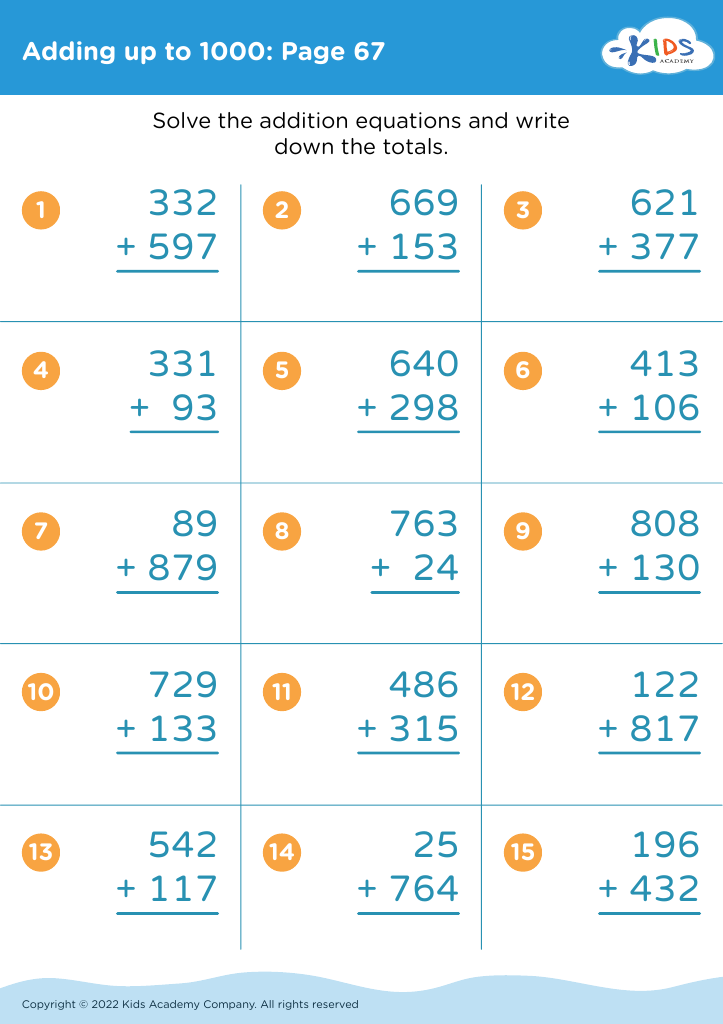Understanding multiplication Adding up to 1000 Worksheets for Ages 7-9
4 filtered results
-
From - To
Unlock the power of multiplication with our comprehensive worksheets designed for ages 7-9! Our "Understanding Multiplication: Adding Up to 1000" resources provide engaging activities that help young learners grasp key multiplication concepts. These worksheets offer a variety of hands-on exercises, enabling kids to practice multiplying numbers while building their confidence in mathematics. Whether it’s using arrays, word problems, or visual aids, each activity aids in reinforcing essential skills for adding up to 1000. Perfect for classroom learning or at-home practice, these worksheets make mastering multiplication enjoyable and effective. Start your child's math journey today!
Understanding multiplication and the concept of adding up to 1,000 is crucial for children aged 7 to 9 as it lays the foundation for their mathematical development. Mastery of these skills enhances problem-solving abilities and fosters critical thinking, which are essential for navigating increasingly complex mathematical concepts as they progress in school.
For parents and teachers, emphasizing multiplication helps children grasp the relationship between numbers, making future learning more manageable. Multiplication is often a gateway to understanding division, fractions, and even basic algebra, which are integral skills in higher mathematics.
Moreover, teaching children to add up to 1,000 introduces them to larger numbers, promoting numeracy and increasing their confidence in handling mathematical tasks. This knowledge expands their understanding of place value and enhances their ability to perform mental calculations and estimations, which are valuable life skills.
Encouraging an early positive experience with multiplication and larger sums not only boosts children's academic performance but also cultivates an enjoyment of learning. By showing care and support in these critical math areas, adults can inspire a lifelong appreciation for mathematics and equip children with essential skills that are transferable to multiple disciplines.


















